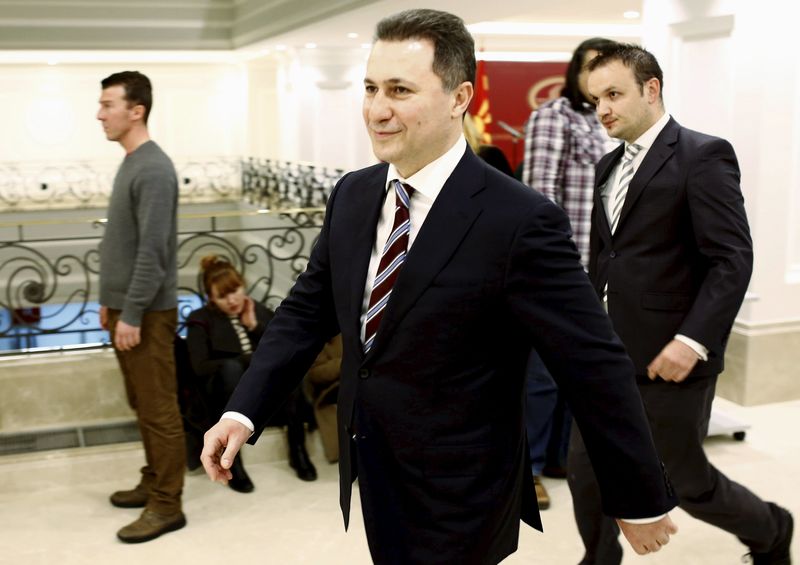By Kole Casule
SKOPJE (Reuters) - A European Union-brokered deal to end a political crisis in Macedonia hung in the balance on Saturday after opponents of conservative Prime Minister Nikola Gruevski threatened to boycott an early parliamentary election in April.
All sides had agreed last year to an April 24 election, two years ahead of schedule, under EU mediation to end months of bitter standoff over allegations against Gruevski's government of illegal phone-tapping and widespread abuse of office.
But opposition Social Democrat leader Zoran Zaev said overnight that not all conditions had been met for a free and fair election in the tiny ex-Yugoslav republic, citing a lack of media reform to reduce government influence and failure to conduct a thorough review of the electoral roll.
"We won't accept elections without timely regulation of the media or timely clearing of the voter list," Zaev told reporters after emerging from late-night talks with Gruevski and the EU's enlargement commissioner, Johannes Hahn, who brokered the original deal.
"If there are elections on April 24 we will not take part," Zaev said. "We will continue to fight for free, fair and democratic conditions in which to hold elections."
Almost a decade in power, Gruevski's government was bombarded last year by allegations of illegal surveillance, meddling in the media and judiciary, rigging elections and appointing party faithful to public sector jobs.
The accusations stemmed from a slew of phone-taps released by Zaev, who said the government had conducted the surveillance. Gruevski denied this and dismissed the accusations as a plot to bring him down.
He submitted his resignation to parliament on Friday, in line with the deal, but said it would become effective 100 days before the election, which has yet to be officially called.
"DEEPER INTO CRISIS"
Gruevski accused Zaev of trying "to take the country even deeper into crisis".
"He just wanted to postpone elections, without any serious arguments," he told reporters.
Gruevski's commands enough votes in parliament to endorse his resignation and force an election regardless of Zaev's threats to boycott.
Hahn said he still expected all sides to stick to the election agreement, promising the poll would be closely monitored by European observers.
He warned of the need for an effective government capable of confronting the challenges the Balkan country faces in terms of the economy and a large wave of migrants crossing its territory from Greece en route to western Europe.

"I will come back," he said, "but now it is up to the political parties to take their decision. I can only urge everybody to participate in elections."